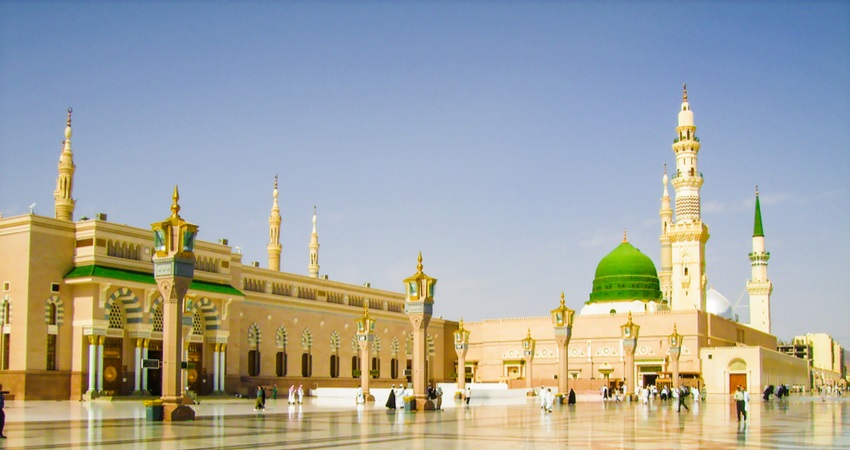Contemplating upon the teachings of the Prophet of Islam on his birthday
As the Islamic world commemorates the birth of Prophet Muhammad (Peace be upon him), it is a key moment to reflect on his teachings, especially in the context of contemporary challenges. The life of the Prophet of Islam presents an example for a believer to shape his spiritual journey. It illustrates the process of becoming a transformative force to establish social justice, equity, and governance based on inclusivity. His teachings offer timeless guidance for overcoming societal divisions and fostering a peaceful, multicultural society. To commemorate this day, we should reflect on the various dimensions of his teachings, as captured in the Charter of Madinah and emphasised by Islamic scholars throughout history.
The Charter of Madinah: A Model of Inclusivity and Governance
The Charter of Madinah, a foundational document drafted by the Prophet of Islam upon his migration to Madinah, laid the groundwork for a pluralistic society built on equality, mutual respect and justice. The Charter presents an enduring relevance in contemporary times, particularly in addressing issues of religious intolerance and conflict. The Charter was remarkable not only for guaranteeing religious freedom and equity but also for its principles of shared responsibility and collective governance.
One of the key lessons from the Charter of Madinah is its emphasis on inclusivity. The Prophet brought together various tribes and religious communities under a single ethical framework, ensuring that all inhabitants, regardless of their faith or background, were granted protection and the right to practice their religion freely. This principle of inclusivity, enshrined in the Charter, resonates with the contemporary need for fostering peaceful coexistence in multicultural and multi-religious societies. In an age marked by polarisation and discord, the Prophet’s governance model offers a valuable framework for creating harmonious communities.
Ethical and Spiritual Lessons from the Prophet’s Life
Beyond governance, the Prophet of Islam’s ethical teachings remains a powerful source of guidance for Muslims today. His emphasis on moral character, compassion, and humility is echoed in the works of scholars such as Imam Ghazali, who wrote extensively on the importance of refining one’s character in accordance with the Prophet’s example. In Ihya’ Ulum al-Din (The Revival of the Religious Sciences), Imam Ghazali highlights that “the foundation of good character is patience, thankfulness, fear of God, and contentment.” These virtues are derived from the Prophet’s message, which provides a framework for individual moral development and societal well-being.
The Prophet’s teachings on forgiveness and mercy, which he demonstrated throughout his life, are particularly relevant today. Despite facing intense opposition and hostility, he always advocated for reconciliation and forgiveness. A profound example of this was his entry into Mecca after years of conflict with its leaders. Instead of seeking revenge, he granted a general amnesty, declaring, “Go, for you are free.” This act of mercy is an enduring lesson in the power of forgiveness, even in situations of deep enmity.
The Prophet’s call for patience, humility, and forgiveness should inspire Muslims to respond to contemporary challenges—personal, social, or political—with grace and compassion. These teachings also remind us that spiritual growth and ethical conduct are inseparable in pursuing a just society.

The Prophet’s model of pluralism and religious freedom offers valuable insights for modern societies grappling with issues of religious intolerance and extremism
Relevance of the Prophet’s Teachings in Contemporary Times
In a world plagued by division, injustice, and conflict, the teachings of Prophet Muhammad (peace be upon him) provide a path forward. The Prophet’s model of leadership and governance, as exemplified in the Charter of Madinah, is particularly relevant in addressing issues of sectarianism, racism, and social inequality. His emphasis on justice, as historians articulated, transcends religious boundaries and can be applied universally in the pursuit of equitable governance and social harmony.
Furthermore, the Prophet’s approach to interfaith dialogue and coexistence is of paramount importance in today’s world. His treatment of the Jewish tribes in Madinah, as outlined in the Charter, serves as a historical example of how diverse communities can live together under a shared ethical framework. The Prophet’s model of pluralism and religious freedom offers valuable insights for modern societies grappling with issues of religious intolerance and extremism.
Throughout history, many scholars reiterated that following the Prophet’s example was not only about external adherence to religious practices but also about internalising the ethical principles that underpin those practices. This holistic approach to ethics, rooted in the Prophet’s teachings, is necessary for fostering peace and justice in our increasingly complex world.
A Call for Renewal
The commemoration of this day of the Prophet of Islam’s birth should serve as a time for introspection and renewal. One should reflect on the Prophet’s teachings and how they can be applied to address the challenges of our time. Whether promoting justice, fostering inclusivity, or cultivating moral character, the Prophet’s life offers a comprehensive framework for individual and societal well-being.
The Charter of Madinah serves as a reminder of the Prophet’s visionary leadership in creating a just and inclusive society. As we commemorate the birth of the Prophet, let us commit to reviving his teachings in our personal lives, communities, and societies, ensuring that the values of justice, compassion, and inclusivity continue to guide us in the years to come.
(Includes excerpts from the book ‘The Charter of Madinah’ by Raamish Siddiqui)
